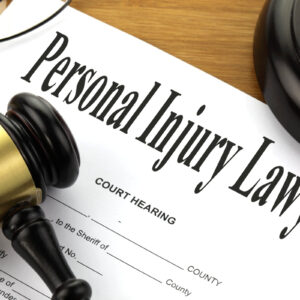When it comes to choosing a personal injury lawyer, it’s crucial to make an informed decision. Personal injury cases, ranging from car accidents to workplace injuries, require a skilled attorney to navigate the complex legal landscape. This article delves into the essential factors to consider when choosing a personal injury lawyer to ensure you get the representation you deserve.
Factors to consider when choosing a personal injury lawyer
Expertise and Specialization
The first step in choosing a personal injury lawyer is to look at their area of specialization. Personal injury law is a broad field, and attorneys often focus on specific types of cases, such as medical malpractice, slip and fall accidents, or car crashes. Choosing a lawyer with expertise in your specific type of case increases the likelihood of a favorable outcome.
Experience in the Field
Experience is another critical factor. An experienced personal injury lawyer will have a thorough understanding of legal procedures, negotiation tactics, and trial strategies. They should have a track record of handling cases similar to yours and be able to demonstrate past successes.
Client Testimonials and Reviews
Client feedback provides valuable insights into a lawyer’s performance and client satisfaction. Reading testimonials and online reviews can give you a sense of their success rate, communication style, and overall client experience.
Communication Skills
Effective communication is essential in any legal representation. Your lawyer should be easily reachable and keep you informed about the progress of your case. They should explain legal concepts in understandable terms and be responsive to your questions and concerns.
Legal Fees and Payment Structures
Understanding how a personal injury lawyer charges for their services is crucial. Many operate on a contingency fee basis, meaning they only get paid if you win your case. Compare payment structures and be clear about any additional costs you may incur.
Accessibility and Location
The location of your lawyer’s office can impact your case. Choosing a local lawyer can be beneficial as they are familiar with the state laws and local court system. Additionally, consider how easy it is to get to their office for meetings.
Approach to Case Management
Each lawyer has their unique approach to managing cases. Some may take an aggressive stance, while others prefer negotiation and settlement. Understand their strategy and ensure it aligns with your expectations and desired outcome.
Trial Experience and Litigation Skills
While many personal injury cases settle out of court, having a lawyer with trial experience is invaluable. They should be prepared to take your case to trial if necessary and have the skills to effectively argue in front of a jury.
Professional Associations and Accreditation
A lawyer’s professional affiliations can indicate their commitment to their field. Look for memberships in legal organizations, any special certifications, and awards or recognitions they have received.
Resources and Team Support
A well-resourced law firm can be a significant advantage. Assess whether the lawyer has access to legal resources, such as a network of expert witnesses and support staff, to strengthen your case.
Client-Centric Approach
Your lawyer should prioritize your needs and work towards your best interest. They should provide personalized legal solutions and be dedicated to achieving the best possible outcome for you.
Understanding of Medical Aspects
Personal injury cases often involve medical terminology and concepts. Your lawyer should have a good understanding of these and possibly have connections with medical experts who can support your case.
Attitude Towards Insurance Companies
Dealing with insurance companies is a crucial part of personal injury cases. Your lawyer should have experience in negotiating with insurers and be adept at handling their tactics.
Ethics and Professionalism
Ethical conduct and professionalism are non-negotiable. Your lawyer should adhere to the highest standards of legal ethics and maintain professional conduct throughout your case.
Technology and Modern Practices
In today’s digital age, the use of technology in legal practices is a must. Your lawyer should employ modern legal technologies for research, case management, and communication.
Client Education and Empowerment
A good lawyer doesn’t just represent you; they also educate and empower you. They should provide you with enough information to make informed decisions about your case.
Risk Assessment and Management
Evaluating and managing risks is a key part of legal strategy. Your lawyer should be able to assess the potential risks in your case and develop strategies to mitigate them.
Personalized Attention to Cases
Look for a lawyer who provides personalized attention to your case, dedicating the necessary time and resources to achieve the best outcome.
Cultural and Linguistic Competence
In our diverse society, cultural and linguistic competence can be crucial. If you have specific cultural or language needs, find a lawyer who can accommodate these.
Post-Trial Support and Assistance
The relationship with your lawyer shouldn’t end with the trial. Post-trial support is important, especially in personal injury cases where long-term consequences might arise.
Network and Legal Connections
A lawyer with a strong professional network can provide additional advantages. Their connections can offer support and resources that may benefit your case.
Adaptability to Case Changes
The ability to adapt to changes and unexpected developments in a case is a valuable skill for any lawyer. Your lawyer should be flexible and responsive to the evolving nature of your case.
Impact of Lawyer’s Reputation
A lawyer’s reputation can significantly impact your case. A well-respected lawyer may be better positioned to negotiate settlements or be more persuasive in court.
Conclusion and Final Decision Making
Choosing the right personal injury lawyer is a decision that should not be taken lightly. Note all these factors to consider when choosing a personal injury lawyer to ensure you find the best representation for your needs.







I like this web blog very much so much superb info .